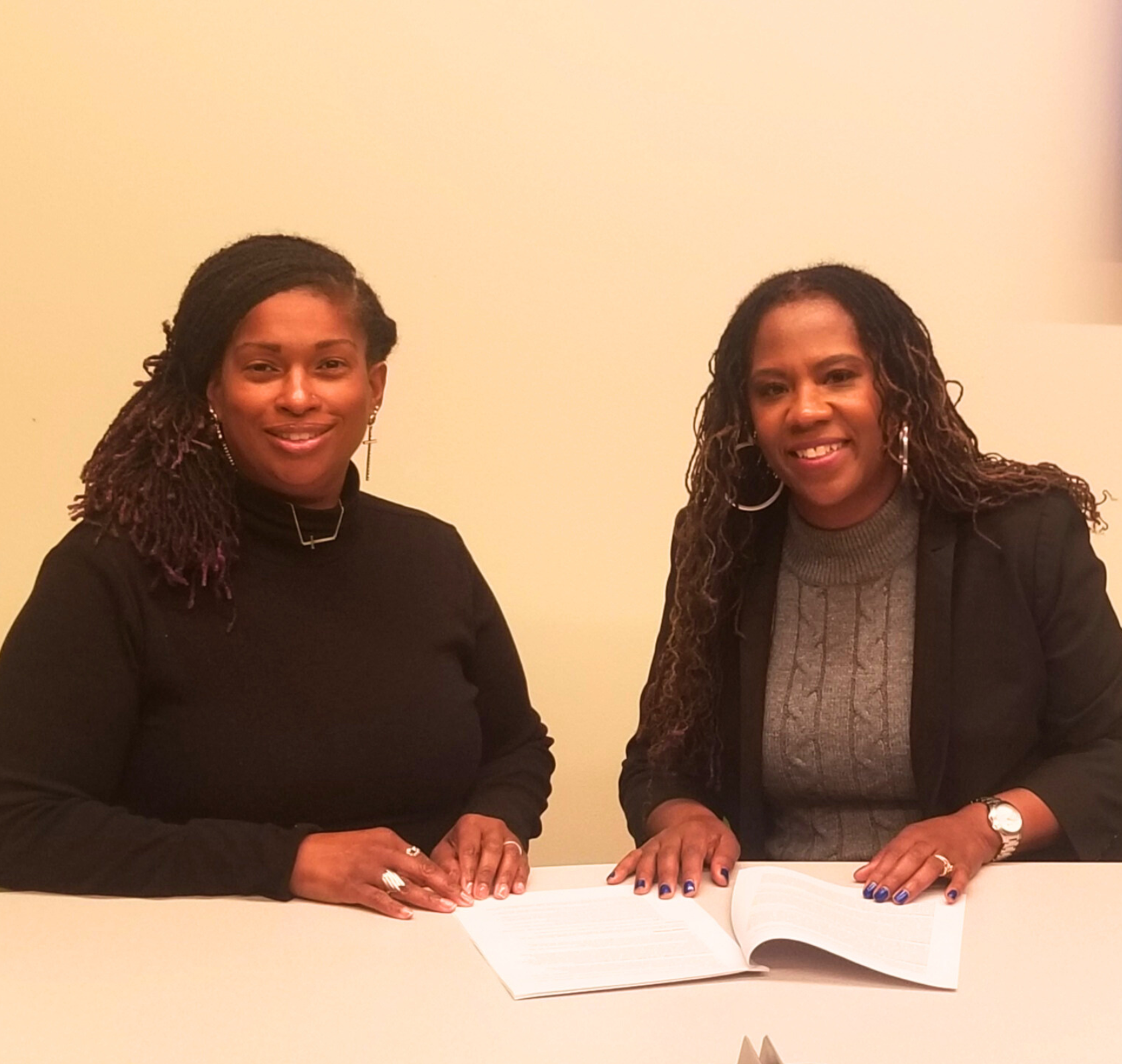Courtesy of Norfolk State University
In the spring semester of 2023, five Masters of Social Work students co-authored a peer-reviewed article with Assistant Professor, Dr. Valjean Livingston, of the Ethelyn R. Strong School of Social Work. The article discusses religiosity and mental health services and was accepted by the Social Work in Mental Health Journal.
Carmen Goode, Tonja Benjamin, Jenasha Freeman, Wendy Salgado, and Yazmin Jones class assignment regarding multicultural counseling became the result of the article. “The students were asked to examine how cultural norms influence the use or lack of use of professional mental health services,” says Dr. Livingston. “This resulted in a discussion on how subjective religiosity might impact mental health service utilization. Many ethnic/racial cultures prefer informal sources of help-seeking.” Past research has suggested that BIPOC (Black, Indigenous, and People of Color) individuals with mental health concerns sought assistance from family, friends and the church first.
As a military spouse for 17 years, MSW student Tonja Benjamin worked with the Fleet and Family Support Center (FFSC), where she was the first point of contact for sailors in the. U.S. Navy, who wanted to receive counseling services with the Chaplain. With this experience, the subject of religiosity and mental health services was something she was familiar with, “The chaplain was first a counselor, then a spiritual leader. If a sailor wanted to receive guidance from a religious standpoint, the Chaplain would give guidance from a spiritual view.”
After dedicating 24 years to the U.S. Navy and eight additional years to government service, Carmen Goode also knows the importance of seeking mental health services, “In military boot camp, my military leaders actively promoted utilizing Chaplain services to improve mental health and alleviate stress,” says Goode. “Although I joined the military with a faith-based foundation, this reinforced the importance of seeking help within the military environment.”
Along with the students’ class assignments, data from the 2021 NSU Health Minds Survey that was collected from the participation of 449 NSU students was added to the article to examine help-seeking behaviors influenced by high levels of subjective religiosity. Data from this survey revealed that the self-stigma associated with help-seeking has decreased, which is information needed for the profession of social work. This finding also signals a significant change in help-seeking behaviors for Black/African American collegians, which is said to have been influenced by the pandemic as more people were affected by the isolation resulting from the lack of contact with family and friends. Social media has provided numerous opportunities to engage with others via virtual platforms, enhance mental health literacy, and link consumers with opportunities for virtual counseling sessions from the comfort of their homes.

